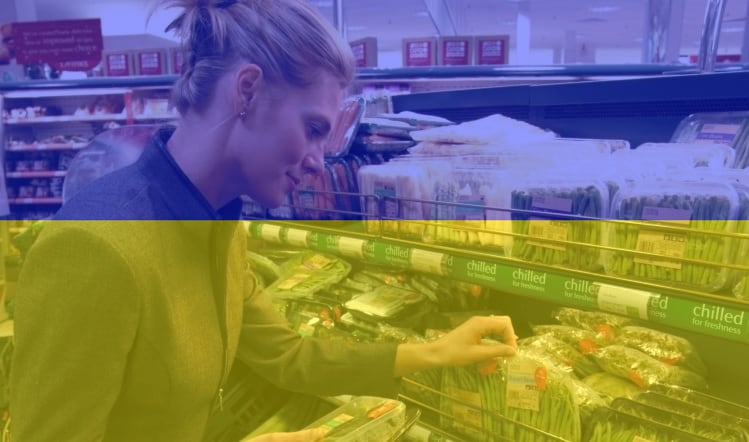The charity said that in April, 7.3m adults lived in households that said they had gone without food or could not physically get it in the past month, which included 2.6m children. This is compared with 4.7m adults in January.
The Food Foundation has called on the Government to take urgent action to prevent further escalation of this crisis including increasing benefit levels in line with inflation, expanding access to Free School Meals and rebalancing food prices so healthy food is the most affordable. It has also called for long-term action to build the resilience of communities and food system to shocks, within a Good Food Bill in the forthcoming National Food Strategy White Paper
The charity also said that there had been a 'sharp increase' in the proportion of households with children experiencing food insecurity in the past month at 17.2% up from 12.1% in January 2022.
High risk
It said this represents a total of 2.6m children aged under-18 who live in households that do not have access to a healthy and affordable diet, putting them at high risk of suffering from diet-related diseases.
It added that families have been facing increasing pressure on their disposable income in recent months because of the rise in energy bills, petrol prices and background inflation, as well as the cost of food.
The increasing cost of living and rising food prices are likely to mean that people become more reliant on lower cost foods which tend to be calorie-dense and nutrient-poor, further increasing obesity and other diet-related diseases, it added.
It said that reducing food insecurity is essential if the Government is to achieve its Levelling Up mission to improve healthy life expectancy and reduce health disparities.
Food insecurity
Anna Taylor, executive director of The Food Foundation said: “The extremely rapid rise in food insecurity since January points to a catastrophic situation for families. Food insecurity puts families under extreme mental stress and forces people to survive on the cheapest calories which lead to health problems.
"The situation is rapidly turning from an economic crisis to a health crisis. Food banks cannot possibly be expected to solve this. The government needs to realise the boat is sinking for many families and it needs to be fixed. Bailing out with emergency food parcels is not going to work.”
Prof Sir Michael Marmot, University College London said “Food is basic, but so is security. Both are vital to good health. If one household in seven is food insecure, society is failing in a fundamental way. These figures on food insecurity are all the more chilling because the problem is soluble, but far from being solved it is getting worse.”
The new data released by The Food Foundation shows in the past month:
- 12.8% of households (6.8 million adults) have had smaller meals than usual or skipped meals because they couldn't afford or get access to food
- 8.8% of households (4.6 million adults) have not eaten despite being hungry because they couldn't afford or get access to food
- 4.6% of households (2.4 million adults) have not eaten for a whole day because they couldn't afford or get access to food
- In total, 13.8% of households (7.3 million adults) had one or more of these experiences in the past month.




